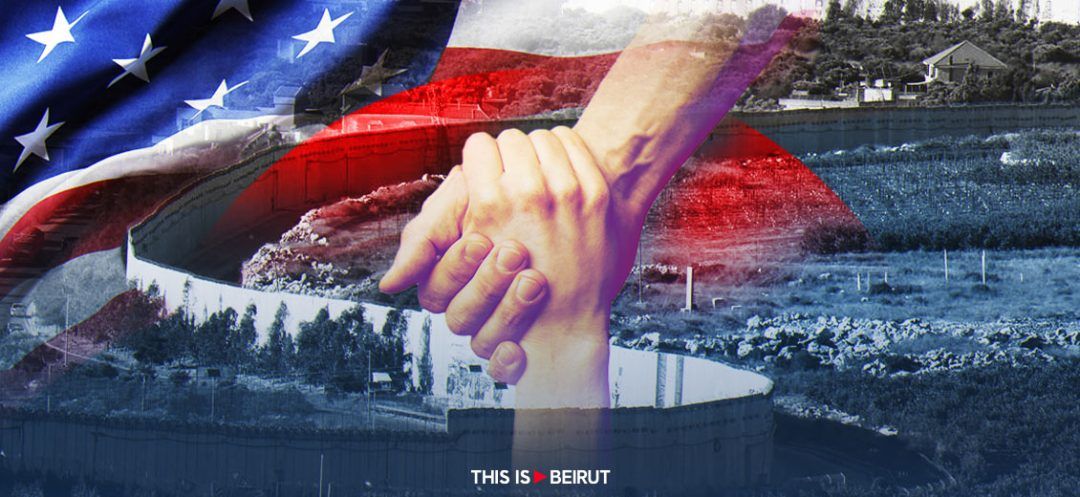- Home
- War in the Middle East
- Ending the Hezbollah-Israel War

International attention is focused on how to bring a ceasefire and at some stage an end to the fighting between Hamas and Israel. This focus is only natural given the state of affairs in Gaza and Israel's war aims there, despite the obvious orchestration of regional attacks on Israeli, American, and global interests by Iranian proxies. However, the risk of further escalation between Hezbollah and Israel is ever-present. American and French leaders and diplomats in particular have not neglected this front, even as their efforts appear to have had little impact. The deployment of two American aircraft carriers in the eastern Mediterranean in the wake of the October 7 massacre was a demonstration from the start that the Biden Administration identified a role for itself in reducing the chances of a full-blown war developing along the Lebanese-Israeli border.
However, the two sides' relative degree of self-control probably has more to do with their own calculations than with any actions or messages from Washington. Despite tough rhetoric, Israeli leaders do not seem to be in any hurry to open a second front while still dealing with Hamas. As for Iran, one theory is that Iranian leaders do not identify a self-interest in letting loose the full power of Hezbollah. To do so would ensure colossal counterstrikes on Hezbollah by Israel, substantially degrading Hezbollah's longer-term ability to threaten Israel. This Hezbollah threat is of strategic value to Iran; so long as it exists, it provides a theoretical deterrent against any Israeli strike on Iran's nuclear program. It is not something to use -- and waste -- lightly. Still, the annals of war are a history of miscalculations, false assumptions, faulty intelligence, and hubris. No one should discount the risk of escalation.
This is why, as Israel struggles to define a new, post-October 7 strategic order, there is a sense on both sides of the Israeli-Lebanese border of unfinished business, even impending doom. The problem is traceable to the unfulfilled commitments made at the end of the 2006 war, enshrined in UN Security Council Resolution 1701. It had all the ingredients needed to establish enduring stability in south Lebanon and northern Israel, except enforcement mechanisms and anything approaching sincerity on the part of Hezbollah and its Iranian masters. Eighteen years later, as that border region is once again a cockpit for war, we should all learn the lessons from 2006 and the failure to implement fully 1701.
Lesson number one is to avoid focusing only on short-term fixes. When the fighting in Gaza ends, the temptation will be to paper over the problems between Hezbollah and Israel. But buying Hezbollah's acquiescence by not applying too much pressure on them and offering them political concessions such as on the Lebanese presidency will do nothing to bring stability. Nor will Israelis be persuaded to accept a return to the precarious, pre-October 7 status quo.
Lesson number two is the need for persistence and a focus on root causes. American diplomacy was instrumental in bringing an end to the 2006 war. However, after the ceasefire was in place, things got complicated, and American officials seemed to lose interest, moving on to other crises. That neglect enabled Hezbollah to evade the demands of 1701, particularly to disarm. If those threatened by Hezbollah do not want a repetition of this experience, then America and its partners should stay engaged even after the fighting stops. Moreover, there should be a recognition that the basic strategic foe is in Tehran, not Beirut. If America's response to the Iranian threat simply is reactive and focused on Iranian proxies, those targeted by Iran will never be at peace. Only when Iranian leaders feel the pain -- not just their proxies -- will we begin to create a context in which Iranian and Hezbollah's behavior of impunity actually has costs, requiring reassessment. Sanctions enforcement on Iran and military pressure on its assets and personnel stationed outside Iran would be a good place to start turning the tables on Iran. Success will require time and persistence.
American and Western diplomats will resume their obligatory treks to Lebanon when the prospects for a ceasefire in Gaza brighten again. But discussions there will be mostly irrelevant if the strategy ignores the central dimension: Iran. So long as the Iranian leadership sees no risk or hazard in keeping their hands on the escalatory dial, the innocent Lebanese civilians who have fled northward, and blameless Israeli counterparts who have moved southward, will find little comfort in a return to their homes. While the armed Hezbollah militia may not feel the political pressure from the displaced, that is not true when it comes to Israel's elected leaders. If the US is unable to develop a convincing strategic game plan that addresses the Middle East-wide Iranian threat, including from Lebanon, Israeli officials will feel compelled to address the threat from its north on its own terms once the situation with Hamas is stabilized. The firepower on both sides of the border has developed immeasurably over these eighteen years; the losses in a full-fledged war now will far exceed the tragedy of 2006. A patched-up, compromised mediation that ignores root causes will make only one set of actors breathe easily, Iran and Hezbollah. It is neither a solution nor a substitute for true statecraft needed to deal with the enduring Iranian problem.
Read more




Comments